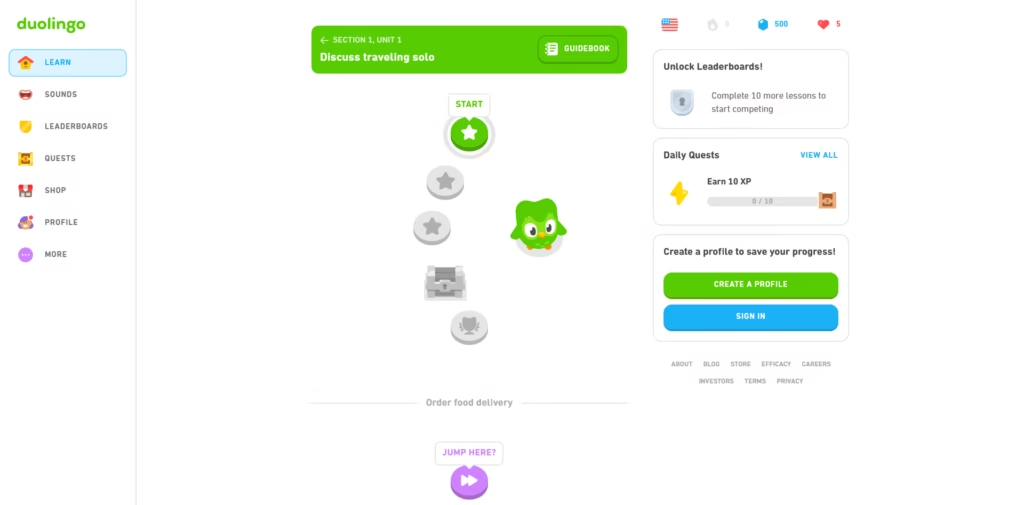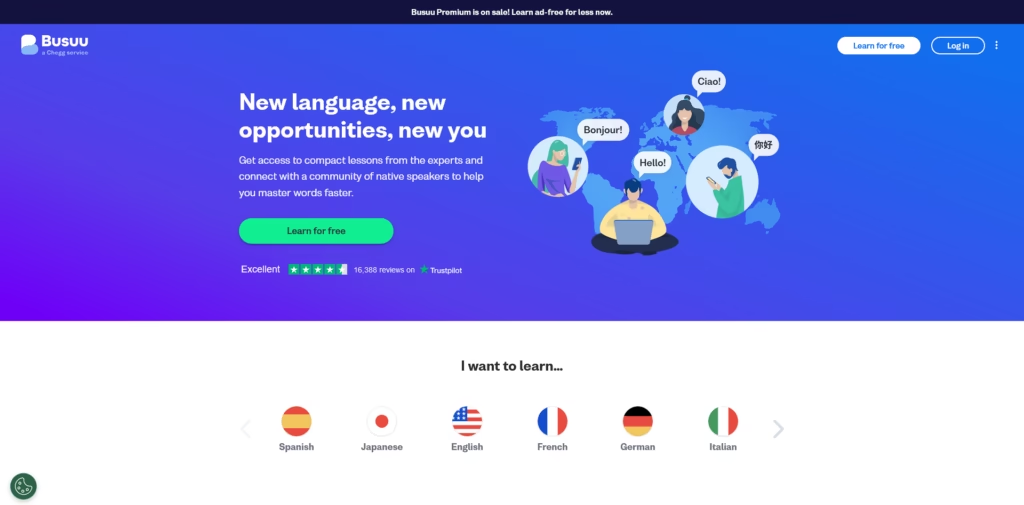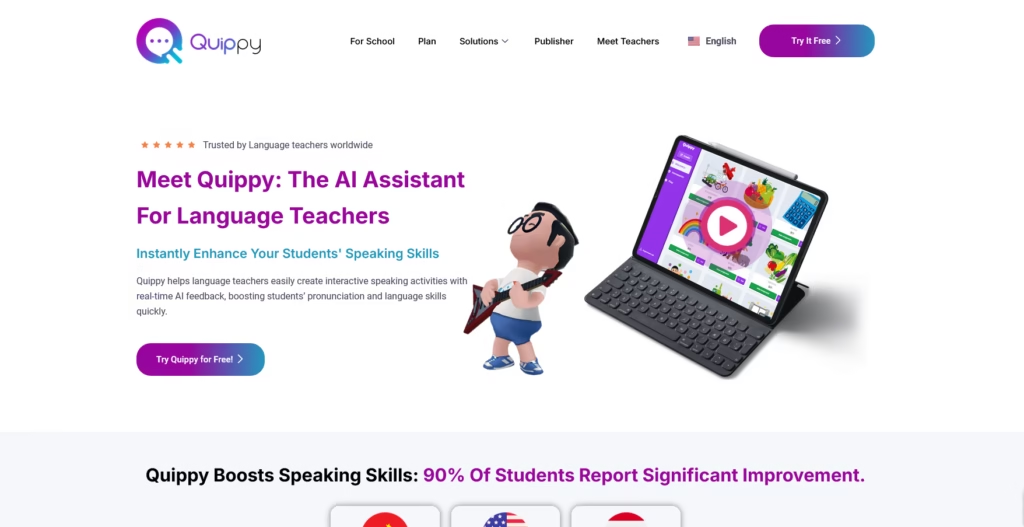In the ever-evolving world of language learning, finding the right app can make all the difference in your educational journey. With so many options available, it’s essential to understand what each app offers to tailor your learning experience to your needs. Today, we’ll compare three popular language learning platforms: Duolingo, Busuu, and Quippy, focusing on their unique features and how they cater to both learners and teachers.
Duolingo: Gamified Learning for Motivation

Features: Duolingo has become a household name in language learning thanks to its engaging, gamified approach. The app structures lessons like games, complete with levels, points, and streaks to keep learners motivated. Its bite-sized lessons cover vocabulary, grammar, and pronunciation, making daily practice easy and enjoyable. Duolingo also incorporates speaking and listening exercises to enhance practical language skills and offers a community forum for interaction with other learners.
Strengths:
- Engagement: The gamification aspect keeps users motivated and eager to continue learning.
- Accessibility: Free with optional premium features for an ad-free experience and additional benefits.
Limitations:
- Speaking Practice: While Duolingo offers speaking exercises, the depth of feedback on pronunciation is limited compared to some other apps.
- Learning Styles: The game-like format might not suit all learners.
Busuu: Structured Learning with Real-Life Practice

Features: Busuu provides a more structured approach to language learning, with well-organized courses that cover vocabulary, grammar, and practical language use. One of its standout features is the opportunity to practice with native speakers and receive feedback, which adds authenticity to the learning experience. The app also includes comprehensive grammar explanations and vocabulary exercises, supported by a personalized learning plan.
Strengths:
- Real-Life Practice: Interaction with native speakers helps bridge the gap between theoretical knowledge and practical use.
- Structured Learning: Offers a clear path for progress and understanding.
Limitations:
- Cost: Some features require a paid subscription, and the free version has limited access.
- Community Feedback: The quality of feedback from the community can be variable.
Quippy: Targeted Speaking Skills and Teacher Support

Features: Quippy takes a different approach by focusing specifically on improving speaking skills. Designed with teachers in mind, it allows for the creation of customized speaking activities tailored to the curriculum. The app provides detailed reports on students’ pronunciation and speaking performance, complete with voice recordings for in-depth analysis. AI-powered feedback ensures students receive immediate and personalized guidance.
Strengths:
- Detailed Feedback: Quippy excels in providing comprehensive assessments of speaking skills.
- Teacher Tools: Offers robust features for teachers, including progress tracking, homework assignments, and customized speech labs and quizzes.
Limitations:
- Community and Engagement: As a newer platform, Quippy may not have as large a user base or community features compared to more established apps.
- Complexity: The focus on detailed speaking practice may not address all aspects of language learning.
Which App Is Right for You?
Each app has its own strengths and caters to different learning needs:
- Duolingo is ideal for learners who thrive on gamified, engaging experiences and prefer a broad overview of language skills.
- Busuu is well-suited for those seeking structured lessons with opportunities for real-life practice and interaction.
- Quippy stands out for teachers and learners focused on in-depth speaking practice and detailed feedback.
Choosing the right app depends on your specific goals, whether you’re looking for motivation, structured learning, or targeted speaking improvement. With these insights, you’re better equipped to select the app that best fits your language learning journey.







